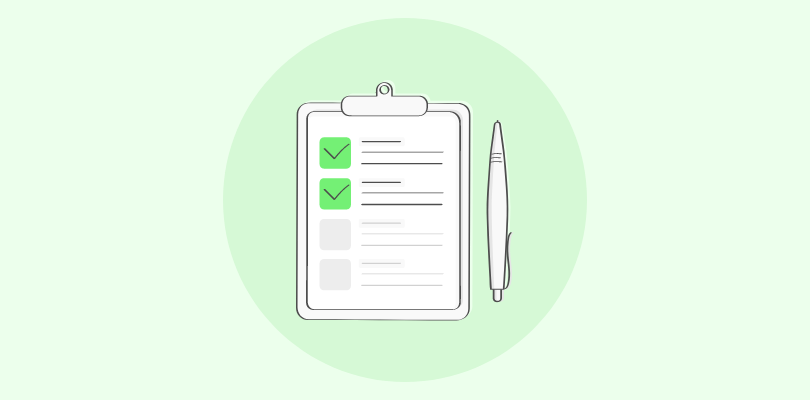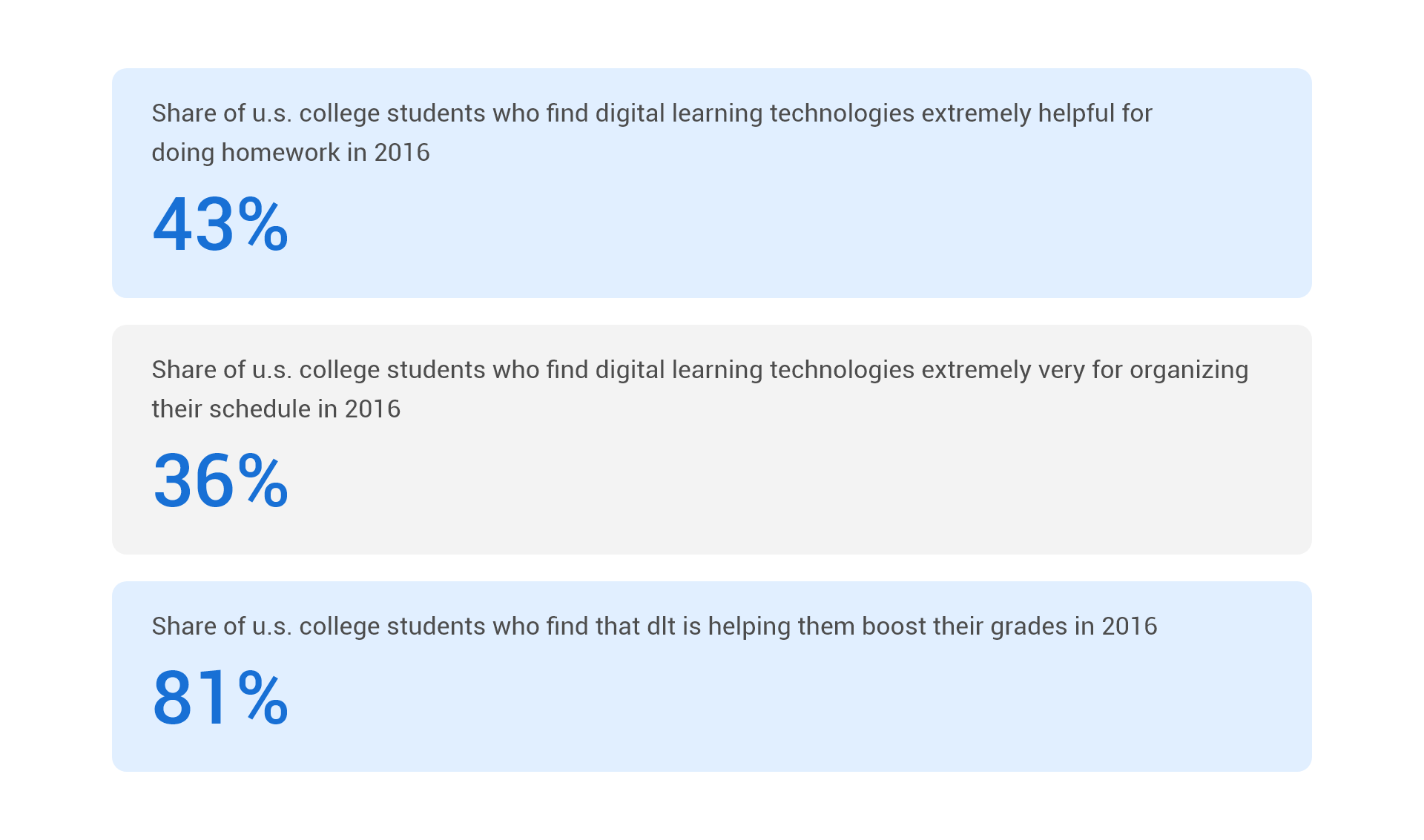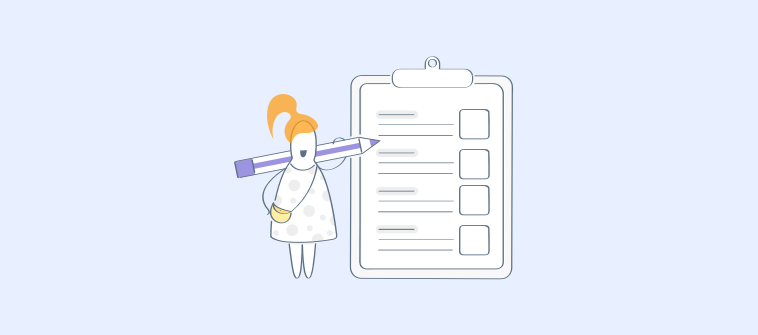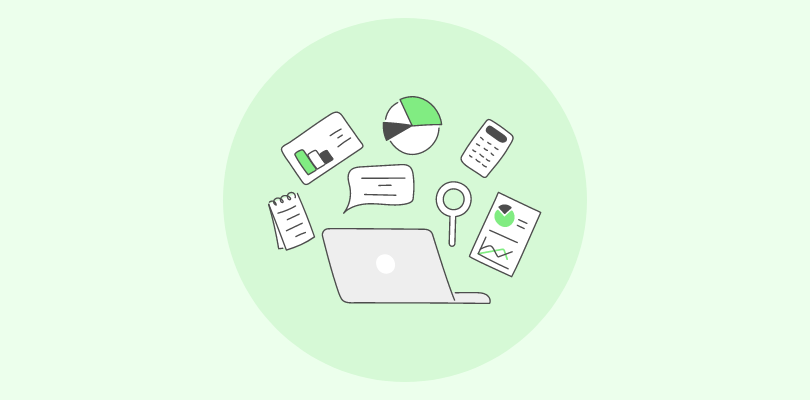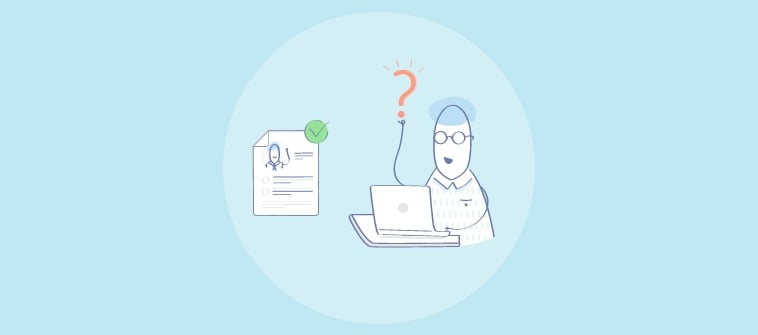Do you want to create and deliver online exams that are secure, reliable, and convenient?
If you’re like most online educators, you certainly do!
But finding the best exam software platform can be a challenge. So many options are out there, and they all claim to be the best.
How do you know which one to choose? Don’t worry, I’ve got you covered.
I’ve spent hours testing out the top e-learning tools on the market. One of the areas I’m most passionate about is online exam software. These tools allow you to design, administer, and grade exams online, without hassle or headache.
In this blog post, I’ll share with you 12 of the best exam software tools I’ve personally tried and tested, so you can find the perfect one for your needs.
Whether you’re looking for a simple quiz maker, a comprehensive assessment platform, or something in between, I’ll help you find it.
Let’s get started!
| 12 Best Exam Software | Best For | Pricing |
|---|---|---|
| ProProfs Exam Software | Easily Creating Secure Quizzes & Assessments With AI or Templates | Forever FREE for short quizzes and all features. Paid starts at $9.99/month for longer quizzes, advanced security, and assessment library. |
| Test Invite | Multi-sectional exams | Starts at $37.50/month (billed annually) |
| Online Exam Builder by EasyLMS | Creating engaging exams | Starts at $55/month |
| Think Exam | AI proctored exams | Starts at $36.81/month |
| Exam Professor | Small businesses | Starts at $12/month |
| QuestBase | Recruitment exams | Starts at €109.95/year |
| ClassMarker | Educational exams | Starts at $39.95/month for businesses and $0 for education (100 exams taken per month) |
| ExamSoft | Formative exams | Starts at $60/academic year |
| SpeedExam | Large enterprises | Starts at $20/month (billed annually) |
| ExamOnline | Live video proctoring | Custom pricing |
| iSpring QuizMaker | Creating math exams | $370/user/year |
| Conduct Exam | Offline exams | $1000/year |
List of the Best Exam Software Tools
This list of exam software tools is based on my experience, extensive research, and peer suggestions. I also considered unbiased reviews from independent sources and positive testimonials from happy customers.
1. ProProfs Exam Maker – Easily Creating Secure Quizzes & Assessments With AI or Templates
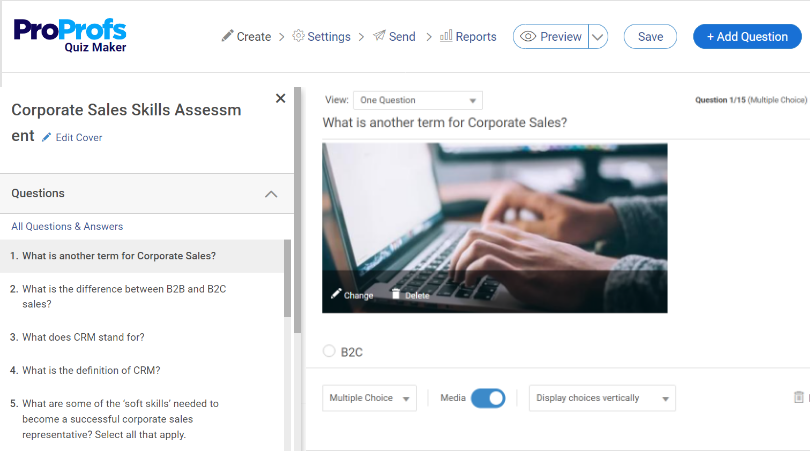
ProProfs Exam Software offers unmatched ease in creating, sharing, and managing online exams. I love that it lets me ask questions in 15+ engaging ways, lets learners take exams on any device, and offers a huge resource library to build exams in minutes.
ProProfs’ library contains over a million ready-to-use questions and hundreds of skill assessments designed by subject matter experts for hiring and training. You can also create your exams in seconds using AI.
This software also lets you conduct credible exams for any business or educational requirement with robust security and anti-cheating settings.
The anti-cheating settings include proctoring, tab switching prevention, question/answer shuffling, copy/print prevention, question pooling, time limits, customizable tracking form, IP security, and more.
ProProfs Exam Software also offers best-in-class reporting and analytics, so you quickly analyze performance and identify learning gaps. You can also create virtual classrooms for easy learner management and exam assignments.
What you’ll like:
- Create quizzes and assessments with advanced AI quiz maker in seconds
- Creating exam quickly using a library of 1,000,000+ ready-to-use questions, hundreds of professionally designed skills assessments, and AI integration
- Robust security and anti-cheating settings to ensure exam integrity and validity
- Various question formats, such as multiple-choice, checkbox, video-response, hotspot, and more; you can also add media to questions and answer options
- Branding, white-labeling, and customization features to give your exams a look and feel you want
- Automated certification, with the option to award custom certificates featuring your signature and company logo
What you may not like:
- More exam templates can be added
- Completely cloud-based so you’ll need stable internet
- Pricing: Forever FREE for short quizzes and all features. Paid starts at $9.99/month for longer quizzes, advanced security, and assessment library.
| Create secure & engaging exams easily to improve learning outcomes |
2. Testinvite – Best for Multi-Sectional Exams
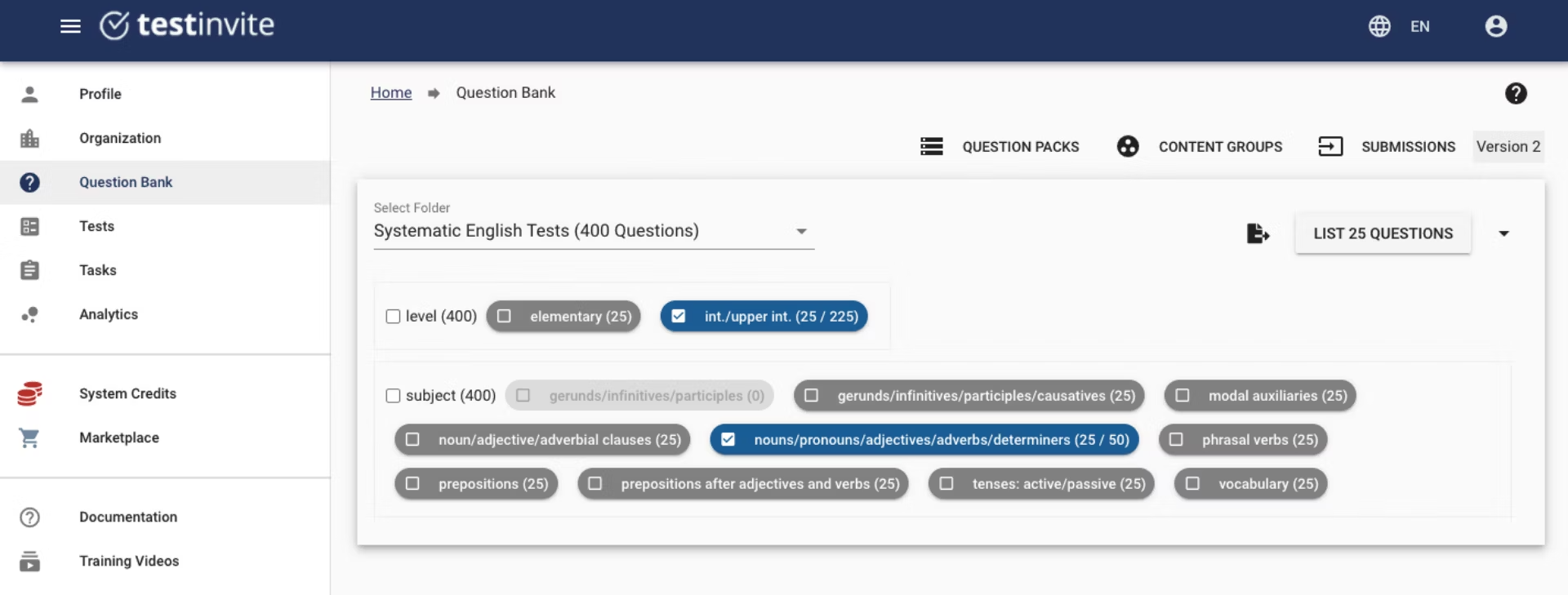
You can create multi-stage exam assessments where candidates can progress from one exam to another using Testinvite; you also control the sequence of the exams and also set passing criteria for each stage.
This exam making software lets you conduct webcam-proctored online exams on a secure and monitored platform. It’s also GDPR-compliant so that you can be assured of your data security.
Once you’ve created your exam, you can send email invitations to share it with the exam takers. You can also configure various exam settings, such as time limitations, shuffling, etc.
I was particularly impressed with Test Invite’s question bank feature that lets you centrally store all questions in folders. You can assign multiple tags to your questions to retrieve a specific set of questions whenever you need.
Instead of repeatedly creating the same questions, you can store them in a question bank and use them in multiple exams. This way, you can lower the rate of error and save time.
What you’ll like:
- You can design a multi-stage exam process with different prerequisites and conditions for each stage
- Rubrics to create grading guidelines and streamline your evaluation process
- You can create a question bank to store, organize, and retrieve test questions with ease and efficiency
- Google cloud architecture to conduct millions of online exams simultaneously and store all tests and reports securely on the Google Cloud
- You can leverage a flexible, a-la-carte pricing system to pay only for the features you need
What you may not like:
- Reports can be more customizable
- There is a bit of a learning curve
Pricing: Starts at $37.50/month (billed annually)
3. Online Exam Builder by EasyLMS – Best for Creating Engaging Exams
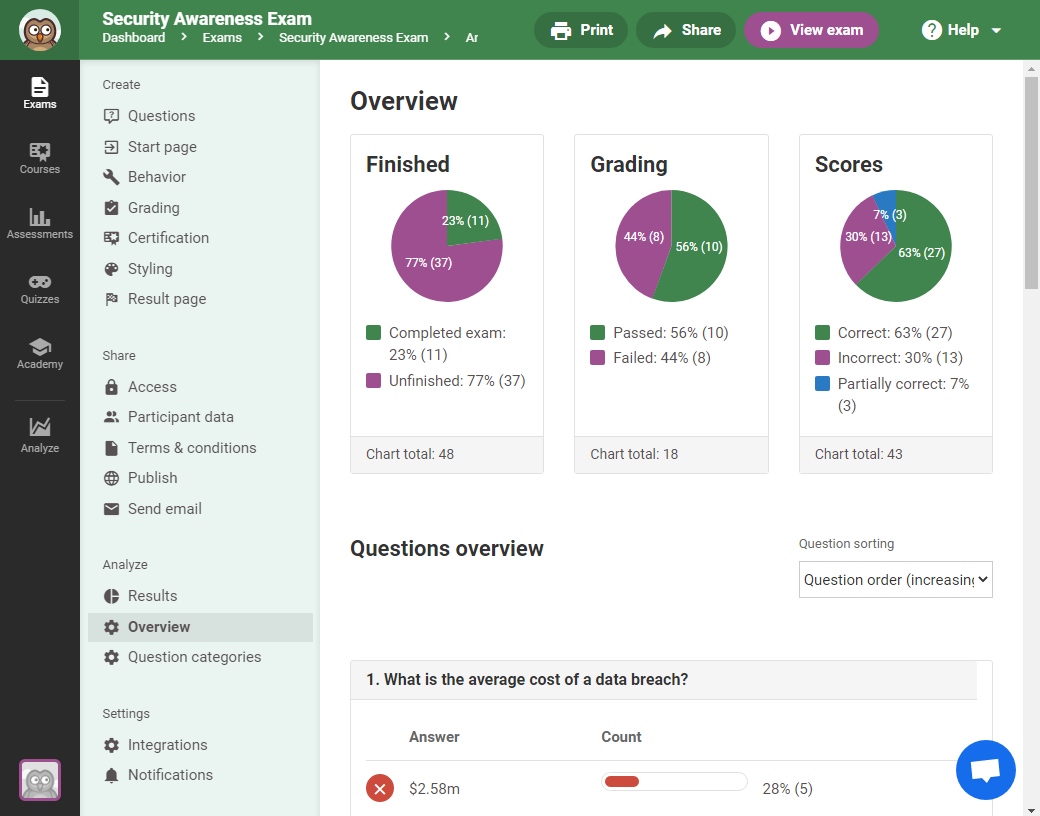
Online Exam Builder is EasyLMS’s exam platform that lets you create beautiful and engaging exams. You can combine text, video, images, and various interactive question types to create fun and insightful exams tailored to your requirements.
Question types include multiple-choice, multiple-response, fill-in-the-blanks, free text, and image, video & audio questions. You can also create custom styling to reflect your brand, white-label your exams, and embed them on your site.
Online Exam Builder lets you assign tags to questions, automate the exam certification process, and track performance and progress with detailed reports and stats.
You can also set various exam rules, such as pass & fail rules, the number of attempts allowed, and whether there will be feedback after each question, at the end of the exam, or no feedback at all.
You can create exams using ready-to-use questions from the question bank and even create your own question bank.
What you’ll like:
- Various features for learner engagement, including interactive question types, multimedia support, instant feedback, custom styling, and an attractive interface
- User-friendly exam builder that lets you create online exams quickly and painlessly
- You can view graphs and statistics that summarize exam performance
- Flexible scoring functionality to adjust the difficulty level and importance of each question
What you may not like:
- Online Exam Builder doesn’t allow you to import questions from Excel.
- It does not support branching logic.
Pricing: Starts at $55/month.
4. Think Exam – Best for AI Proctored Exams
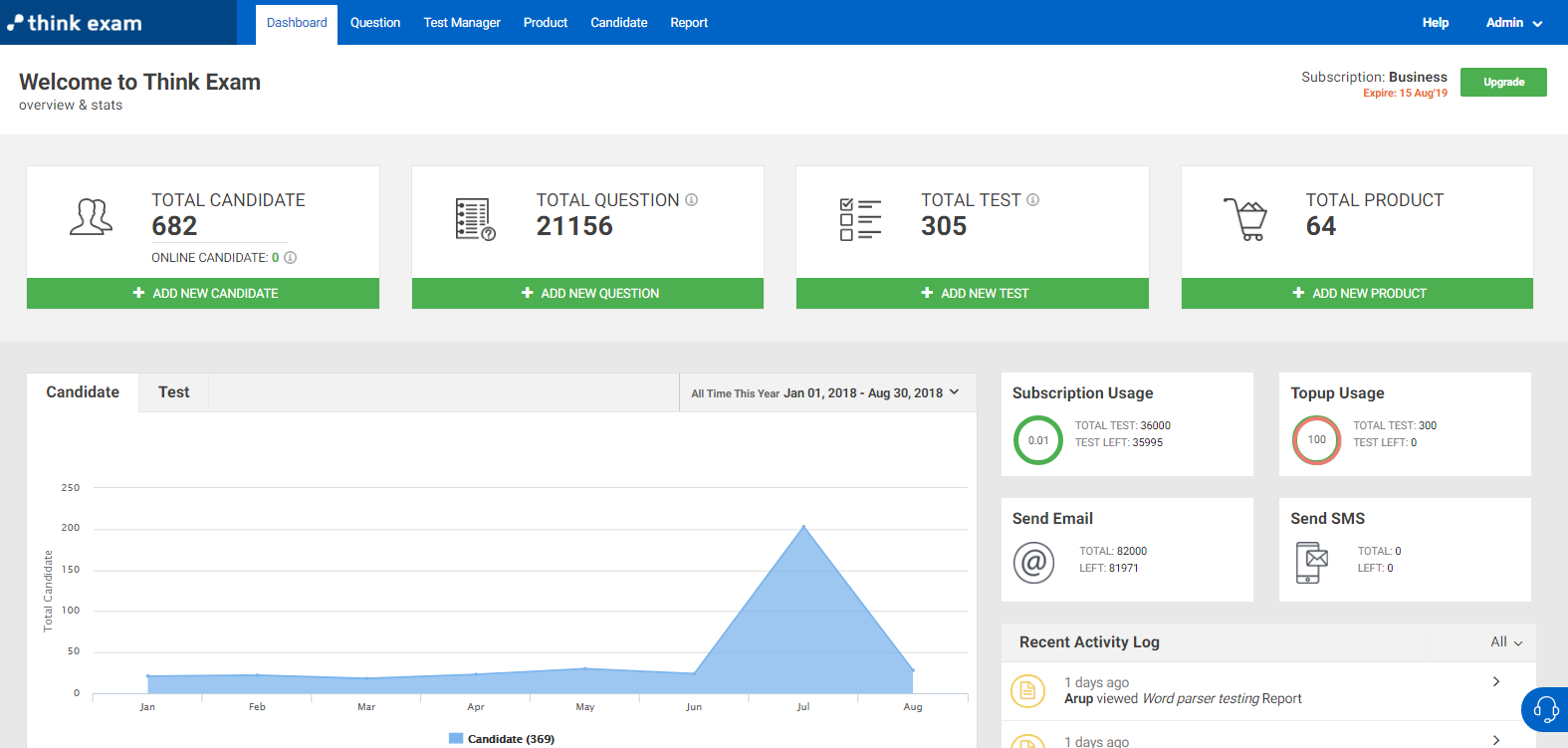
Think Exam is one of the most secure and reliable exam maker software. It lets you prevent cheating and unauthorized access with several advanced anti-cheating functionalities.
You can verify the identity of your candidates, restrict their browser activity, and monitor their behavior using remote proctoring. Whether you need live, recorded, or AI-based proctoring, Think Exam has it all.
Think Exam allows you to create and conduct online assessments with ease and flexibility. You can design your own question banks with nine types of questions, including images and mathematical equations, and shuffle the questions to create different exam versions.
You can also manage your candidates, import and export their data, and track their performance using advanced reporting and analysis tools. This exam creation software also helps you monetize your test series by offering multiple payment options and a streamlined allocation of tests.
Overall, I found Think Exam to be a simple to use software that lets you play with many possibilities and create high-quality online exams.
What you’ll like:
- Candidate ID verification, AI-based automated proctoring, and human-based live proctoring to prevent cheating and unauthorized access
Advanced reporting and analytics for in-depth analysis of exam performance - You can customize your tests with your own logo, color scheme, instructions, and timer.
- You can sell your exams and earn money from your knowledge and expertise.
What you may not like:
- The interface can be buggy sometimes
- Customer service could be better
- More question types can be added
Pricing: Starts at $36.81/month
5. Exam Professor – Best for Small Businesses
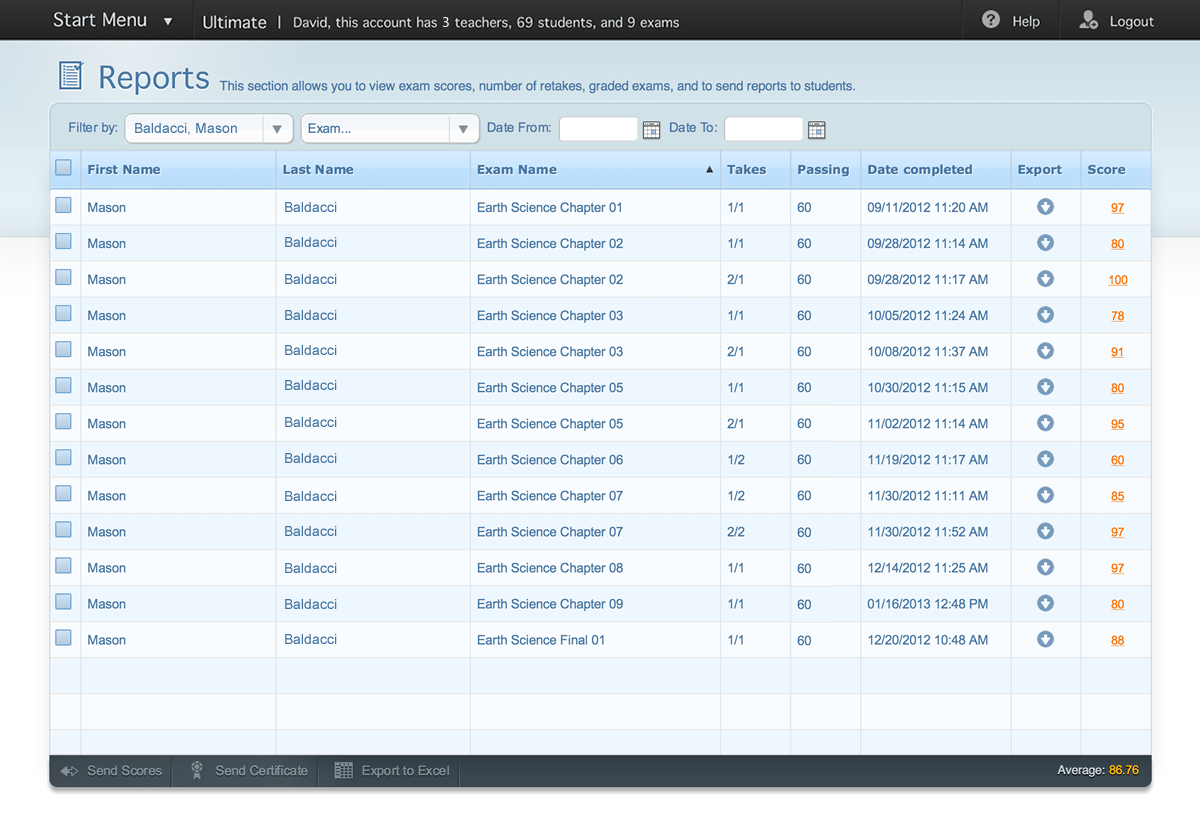
Exam Professor is a simple, affordable, and powerful online examination software suitable for teachers and small businesses. With an amazing set of features, it lets you seamlessly build engaging exams and embed them on your website.
What I love most about Exam Professor is its super-easy-to-use HTML question editor.
You can type your question, tab to the next field, type an answer, enter to save, and repeat. Once you have entered your data, you can drag your questions and answers in any order and organize them to your liking.
You can make your exams private with a private login or make them public and let students take the assessments anonymously. You can track all student activity easily and view, print, or export the information later.
Other top features in Exam Professor include time limits, question/answer shuffling, question pooling, email notifications, analytics, learner self-registration, and customization options.
What you’ll like:
- Simple, user-friendly question editor ideal for seamless quiz creation
- Affordable starting plan suitable for small businesses.
- Anti-cheating features, such as time limits, question/answer shuffling, and question pooling
- insightful statistics that make it easy to adjust your instruction according to learner challenges
What you may not like:
- Proctoring and browser security are not available
- Very few question types available
Pricing: Starts at $12/month
6. QuestBase – Best for Recruitment Exams
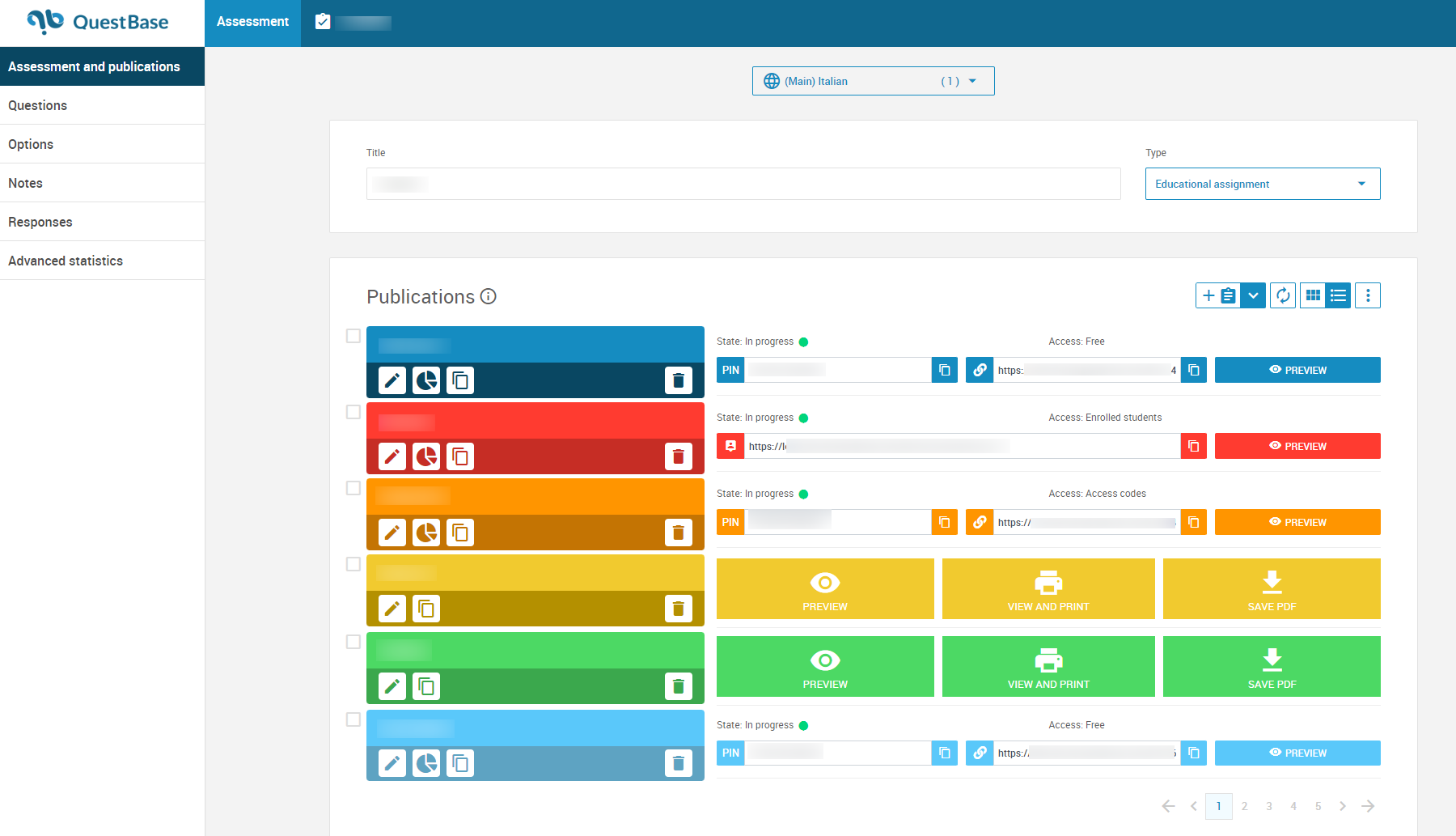
QuestBase is the ideal exam maker software for HR managers, educators, and trainers to conduct secure exams online.
Especially suited for recruitment assessments, it generates advanced assessment reports and graphs that help you identify the strengths and weaknesses of your candidates, as well as compare them with each other. You can also display, print, or export test responses to other programs for analysis.
Moreover, you can integrate QuestBase with your existing systems and platforms, such as HRM, CRM, email, or LMS. You can also use QuestBase’s API to connect with other applications and services.
Its safe exam browser helps prevent cheating in various ways, such as by blocking multiple screens, preventing switching applications via keyboard shortcuts, turning off the right-click button and trackpad, and more.
QuestBase also lets you award custom certificates to exam-takers. You can easily create a certificate by uploading a template and adding dynamic fields.
What you’ll like:
- Powerful, real-time reporting with advanced statistics and graphs for in-depth performance analysis
- Top-notch browser security features to prevent exam takers from looking up answers online
- You can insert your logo in the exams and the personal login page to showcase your branding.
- You can import students and questions from or export them to external files.
What you may not like:
- Proctoring functionality is not available.
- Limited question types
Pricing: Starts at €109.95/year
7. ClassMarker – Best for Educational Exams
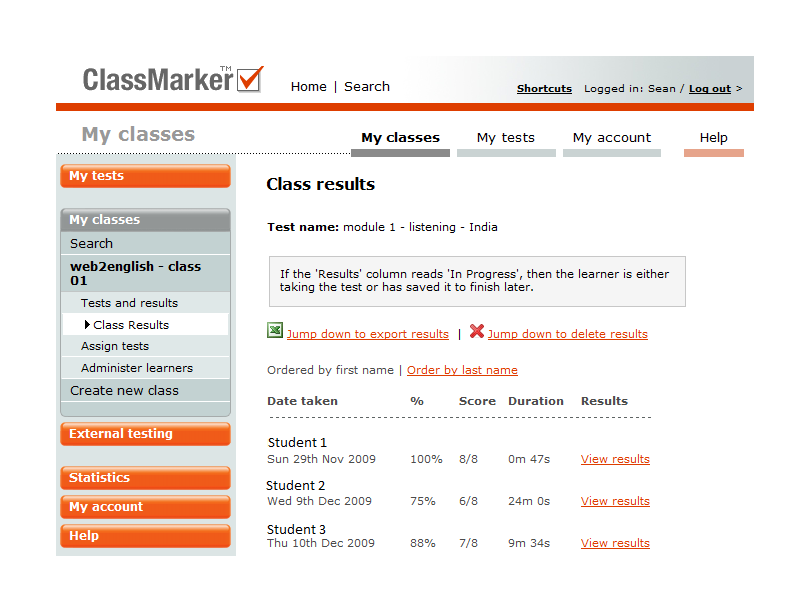
ClassMarker offers separate pricing plans for educational and business purposes. Its plans for teachers include one free and one affordable premium plan, making it one of the best online exam platforms for teachers.
However, this highly scalable software is also widely used by enterprises to create training tests, pre-employment assessments, practice tests, lead generation quizzes, and more.
ClassMarker offers an impressive list of features, including robust security, privacy & anti-cheating settings, the ability to create question banks, certification, white-labeling, API, and much more.
ClassMarker also lets you change your interface language to conduct exams in any popular language. You can easily create learner groups to assign the same exam to several learners.
It also lets you automatically extract learners’ results with API or webhooks and integrate with third-party LMSs and services, such as CRMs or your recruiting portal.
What you’ll like:
- Advanced exam settings, such as time limits, public & private test access, randomized questions, and more
- You can classify learners into groups to streamline exam assignments and save time.
- You can create a database of questions by category and import from it whenever needed.
- You can conduct exams in multiple popular languages.
What you may not like:
- You can’t add PowerPoint presentations to your exams
- Proctoring features are not available.
Pricing: Starts at $39.95/month for businesses and $0 for education (100 exams taken per month)
Related Read: Top 6 ClassMarker Alternatives in 2024
8. ExamSoft – Best for Formative Exams
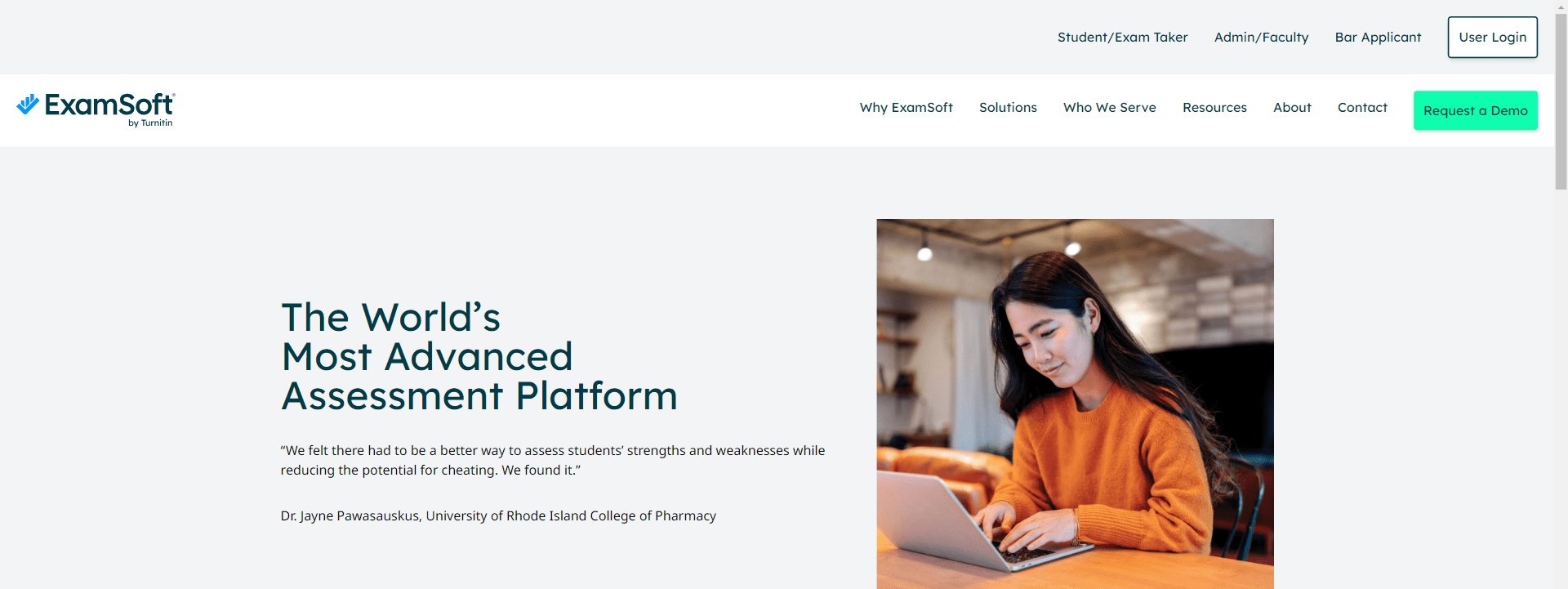
ExamSoft offers an exam maker software tool that focuses equally on conducting credible assessments and collecting valuable data for improving teaching methodologies and learning outcomes.
With this online exam maker software, you can collect and organize all your assessment data in one place, analyze exam results, and generate valuable reports on learners that highlight individual strengths and opportunities.
You can also provide learners with detailed feedback to improve their performance.
ExamSoft provides a highly secure online testing software to protect the integrity of your exams and assessment data. You can verify and monitor exam takers’ identities with advanced proctoring functionalities.
You can also lock browsers, restrict internet access and applications on exam takers’ devices to prevent cheating. You can also randomize the question order and get in-depth insights on exam-taker activities.
What you’ll like:
- You can create assessments with ready-to-use data to improve the course and learner performance.
- Live and AI proctoring, identity verification, and several anti-cheating settings to protect exam integrity
- Category-based data reporting to focus on areas that need the most improvement
- You can import questions in bulk from various types of files to expedite exam creation.
What you may not like:
- ExamSoft’s security features can cause temporary issues in learners’ devices and even brick them.
- The user interface can be faster and more user-friendly.
Pricing: Starts at $60/academic year
9. SpeedExam – Best for Large Enterprises
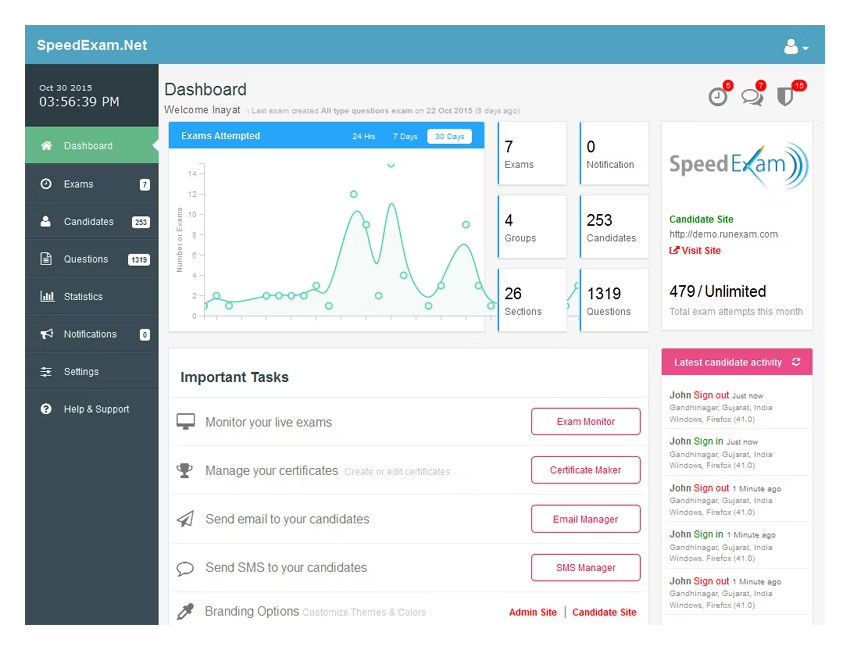
SpeedExam lets you create exams quickly and conduct them efficiently for many exam takers, making it ideal for large enterprises.
It also offers several functionalities to prevent unauthorized exam access and cheating, making it one of the best exam software for high-stakes requirements.
These include live and AI-based proctoring and real-time delivery of key exam taker information, such as the number of attempts, browser, device name, operating system, location details, IP address, and more.
With SpeedExam, you can ask questions in 10 different ways to deliver engaging and insightful exams. It also lets you create multiple instructor accounts and assign other roles to streamline learner management.
To prevent exam leakage, you can get notified via email or SMS whenever someone tries to copy the exam content, using a print screen or attempting multiple logins.
What you’ll like:
- Easy to conduct concurrent exams for numerous exam takers
- AI-based cheating prevention features to conduct credible exams
- You can export questions, test results, and performance reports to Excel and import questions from Excel or Word.
- Detailed performance reports that help identify strengths and weaknesses
- You can create and award professional certificates featuring your company’s branding elements.
What you may not like:
- It’s not easy to locate your previously created questions.
- More options can be added for customizing the user portal.
Pricing: Starts at $20/month (billed annually)
10. ExamOnline – Best for Live Video Proctoring
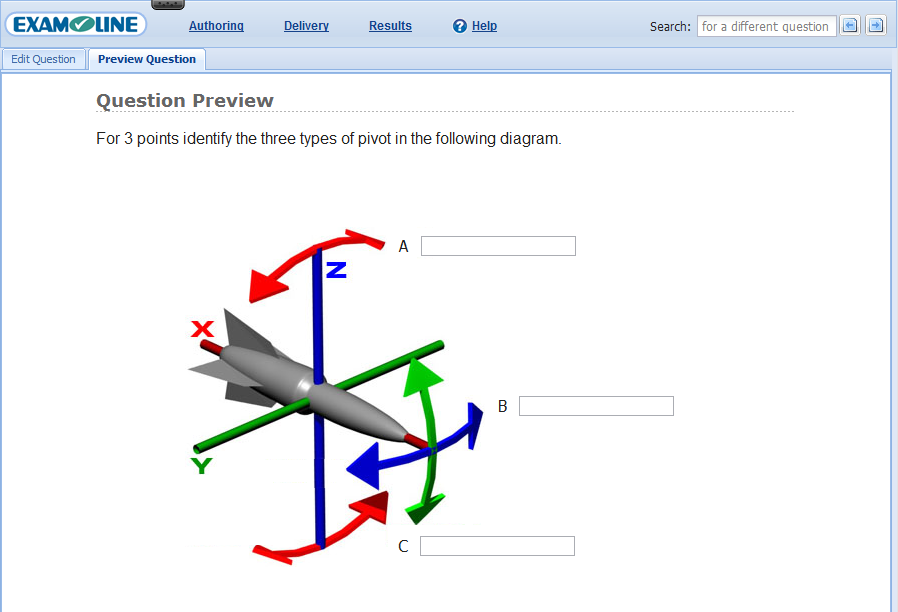
Whether you’re conducting hiring, training, or educational assessments, ExamOnline offers robust functionalities for every stage of the exam lifecycle.
You can create and assign exams easily, effectively manage all learners, and prevent cheating with top-of-the-line security and proctoring settings.
I particularly liked that this exam creator software provides clear and high-quality audio and video feeds for dependable live or recorded exam monitoring.
I also found this exam making software’s exam-reporting system to be one of the best in the business. The highly insightful exam reports feature scorecards, computational analysis, and detailed analytics.
ExamOnline also serves as a certification platform. You can select a professionally designed certificate template from its library and customize it to suit your requirements. Certificates are automatically awarded to candidates on passing an exam.
What you’ll like:
- Best-in-class proctoring/anti-cheating settings, including face detection, automated remote monitoring, and browser security
- Intuitive dashboard to easily manage all exam takers and information related to them
- You can automatically notify examinees via email and SMS regarding exam date and time and other key updates.
- You can create questions offline and upload them in bulk to save time.
What you may not like:
- Limited language support
- There’s no free trial available to test-drive this online exam tool.
Pricing: Custom pricing
11. iSpring QuizMaker – Best for Creating Math Exams
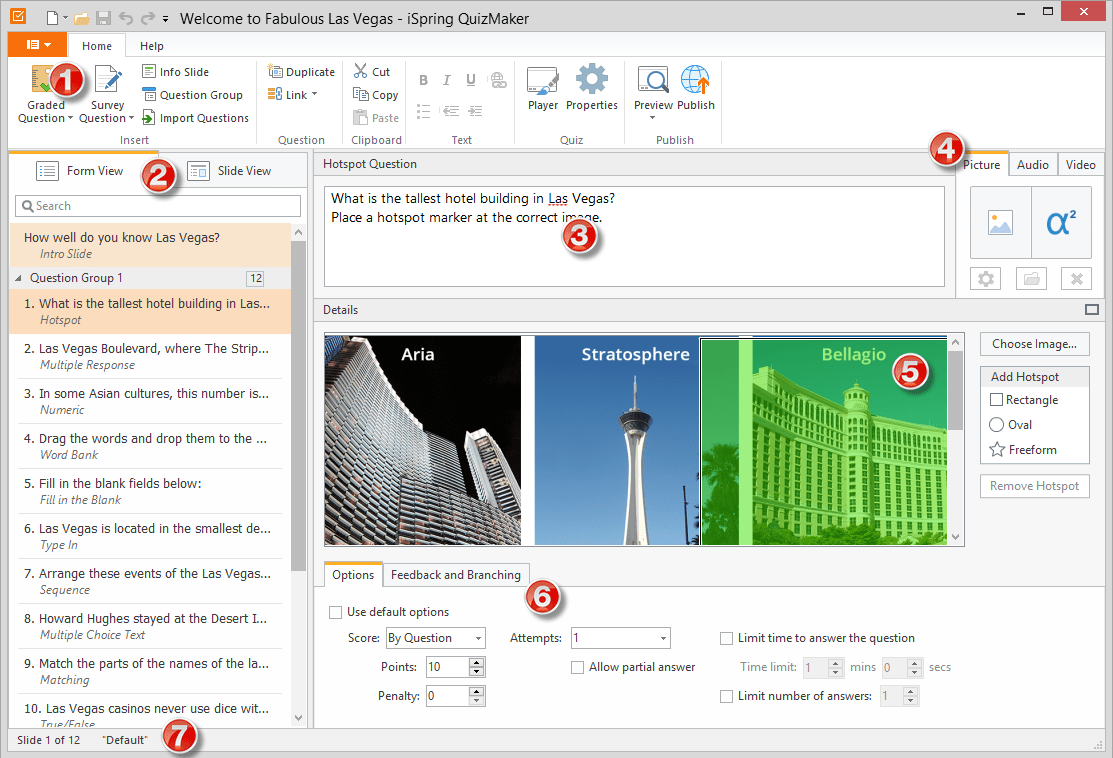
iSpring QuizMaker is a powerful and easy-to-use tool for creating online quizzes, tests, and exams for diverse educational and business purposes.
One of the advantages of iSpring QuizMaker is that it allows you to create math exams easily. You can also use LaTeX to insert complex mathematical expressions and symbols, like square root, power, integral, etc., in your questions and answers.
It’s also an excellent option for creating training exams. You can provide detailed answer feedback and add slides with in-depth information on a topic. This helps employees learn concepts more thoroughly.
With iSpring, you can choose from 14 question types, add multimedia, publish tests to the Web or an LMS, and track results online. The exam software tool also performs well and can handle large quizzes with hundreds of questions without any performance issues.
What you’ll like:
- You can create beautiful and interactive assessments with 14 question types, drag-and-drop activities, customizable designs, equations, and math symbols.
- Support for SCORM and xAPI standards to upload your quizzes to any LMS and track employees’ results online
- Advanced testing rules and flexible scoring options, such as randomization, time limits, negative scoring, branching, and feedback.
- You can publish quizzes in various formats, such as HTML5, Flash, EXE, or Word.
What you may not like:
- Limited language support
- Customizing the question slides isn’t easy.
- Inflexible, single-tier pricing
Pricing: $370/user/year
Read: Top 6 iSpring Alternatives in 2024
12. Conduct Exam – Best for Offline Exams
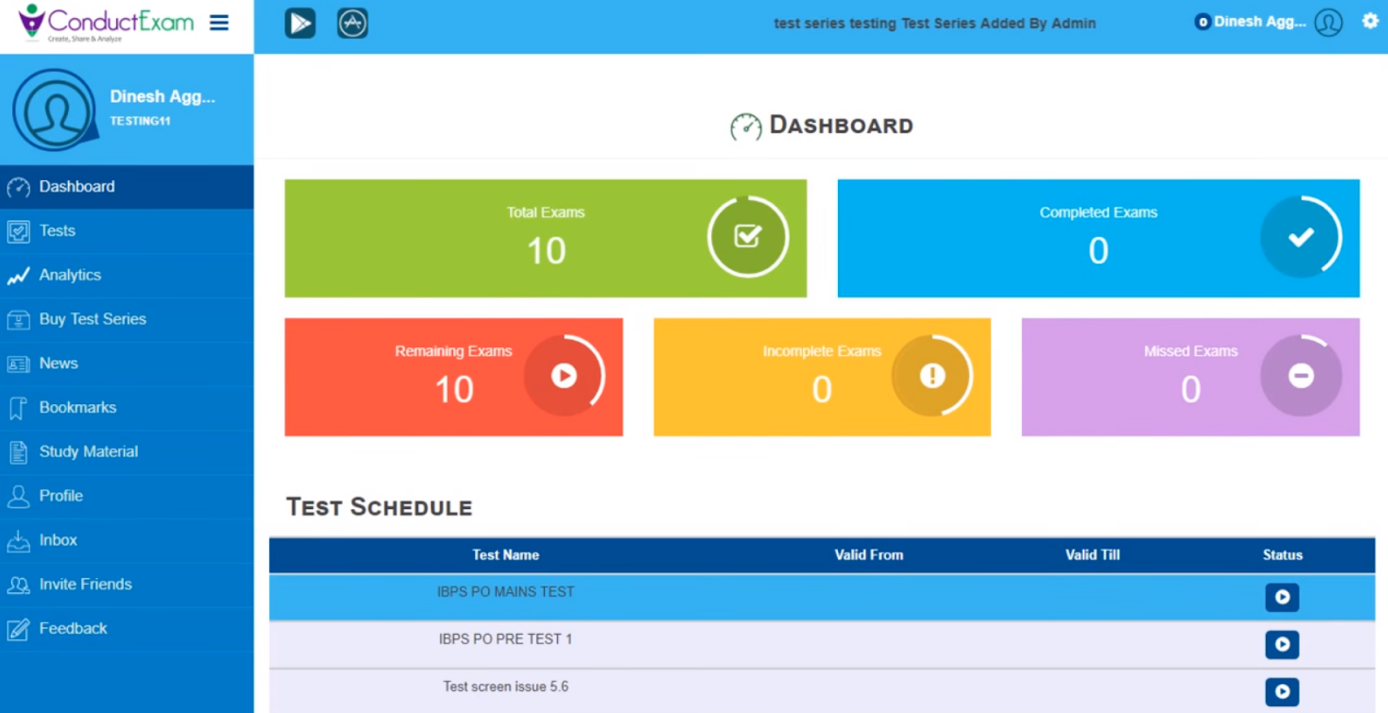
Conduct Exam is a robust platform for creating exams online or offline. It’s highly efficient regarding reliability and speed, making it suitable for all organizations looking for an effective way to assess learning and provide certification.
This exam maker software packs a good set of exam functionalities without under-delivering on the user experience. A highly convenient option, Conduct Exam works great on mobile devices and lets you import questions from a Word or Excel file.
Conduct Exam lets you create your question bank and use it to present different questions to different exam takers to reduce cheating. You can also create sub-admins under your supervision and assign them different roles and responsibilities to smoothen exam management.
Other valuable features this exam software tool supports include question randomization, Excel upload, screen share proctoring, exam availability settings, and e-commerce.
What you’ll like:
- Offline options to offer exam takers flexibility to take exams without an internet connection
- Multiple question formats, including audio/video, to create engaging formative assessments
- You can add multimedia files to your questions, including images and videos.
- You can easily add/import questions from a Word or Excel file based on the topic/subject.
What you may not like:
- Doesn’t offer ready-to-use questions or tests
- Webcam proctoring is not available
Pricing: $1000/year
Evaluation Criteria
The evaluation of products or tools chosen for this article follows an unbiased, systematic approach that ensures a fair, insightful, and well-rounded review. This method employs six key factors:
- User Reviews / Ratings: Direct experiences from users, including ratings and feedback from reputable sites, provide a ground-level perspective. This feedback is critical in understanding overall satisfaction and potential problems.
- Essential Features & Functionality: The value of a product is ascertained by its core features and overall functionality. Through an in-depth exploration of these aspects, the practical usefulness and effectiveness of the tools are carefully evaluated.
- Ease of Use: The user-friendliness of a product or service is assessed, focusing on the design, interface, and navigation. This ensures a positive experience for users of all levels of expertise.
- Customer Support: The quality of customer support is examined, taking into account its efficiency and how well it supports users in different phases – setting up, addressing concerns, and resolving operational issues.
- Value for Money: Value for money is evaluated by comparing the quality, performance, and features. The goal is to help the reader understand whether they would be getting their money’s worth.
- Personal Experience / Experts’ Opinions: This part of the evaluation criteria draws insightful observations from the personal experience of the writer and the opinions of industry experts.
Which Is the Best Exam Software?
Finding the best exam software tool for your goals is essential to get the best results, whether you’re conducting exams for education, hiring, or training. I have shortlisted three options that might suit your needs. Let’s explore them together and see which one is the ideal match!
Option A: ProProfs Exam Software
ProProfs Exam Software is an AI-powered tool that lets you create and share online exams in various formats and access an extensive resource library. It also offers security and customization features for your exams and certificates. ProProfs Exam Software is easy to use and compatible with different devices and browsers. It also supports multiple languages and integrations.
Option B: Think Exam
Think Exam helps you conduct exams for various purposes and sectors. It also provides a powerful reporting system and splendid support. Think Exam also enables you to create and sell your tests online. It also has a mobile app that syncs with the web platform and offers a seamless experience.
Option C: ExamSoft
ExamSoft helps you collect and analyze data from multiple assignments to improve curriculum and engagement. ExamSoft also offers exam security and data reporting features that give you a holistic view of student performance. It also allows for storing and organizing data in a centralized repository for future reference.
In conclusion, each of these exam software tools offers unique features and benefits. For those seeking a blend of simplicity, efficiency, and comprehensive functionality, ProProfs Exam Software stands out as the optimal choice.
It not only streamlines the process of creating and managing exams but also enhances the experience for both administrators and users.
Sameer Bhatia, founder of ProProfs, noted in an interview with Killer Startups, “Our brand promise is simplicity. We look at how we can make the product simple enough for anyone to use with no prior training.”
This commitment to simplicity ensures that ProProfs Quiz Maker is the recommended tool for achieving your educational and training objectives effortlessly.
FREE. All Features. FOREVER!
Try our Forever FREE account with all premium features!

